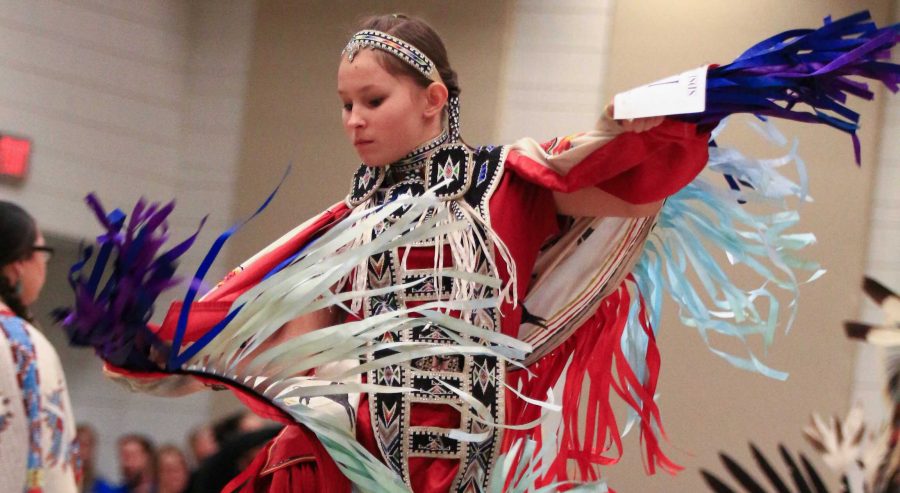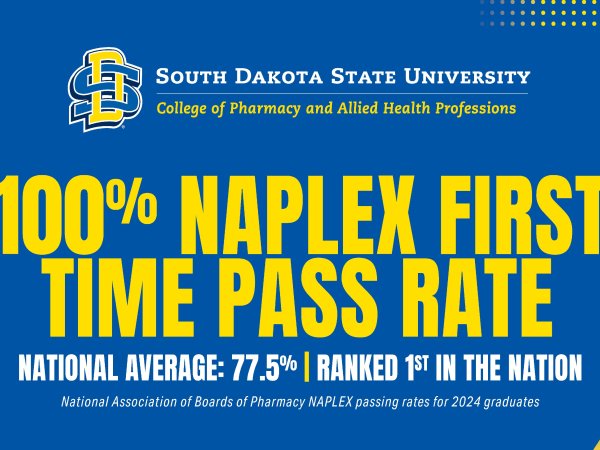The 27th annual South Dakota State University Wacipi will unite Native American people from across the state and around the campus community for celebration and thanksgiving.
Hosted by the American Indian Student Association, the event will be held March 24 in the Volstorff Ballroom of The Student Union.
A Wacipi, or powwow, is a Native American celebration in which people gather to reconnect with friends and family. The event also offers a time to reflect on hardships and a time to give thanks and honor veterans and other notable figures in the community. The SDSU Wacipi will feature homemade tacos, songs set to drums and competitive dancers in traditional regalia.
For students like Alaina Hanks, a graduate assistant for the American Indian Student Center helping to host the event, “there’s a different feeling to this year’s powwow.”
“This has been the only consistent event that we’ve actually had a say in that concerned us because students plan it and coordinate it,” Hanks said. “For a few years, it kind of got away from that. But now that students are taking it back — it feels better in a way, when someone from your community takes ownership of it.”
April Eastman, director of the American Indian Student Center, said the event’s dance competition can trace its origins to the history of Native American life under the U.S. government.
“Before 1978, which was the Indian Religious Freedom Act, Indian people couldn’t practice their spirituality or their ceremonial ways, so that was a way for Indian people to gather and not be penalized by the government,” Eastman said. “Dancing wasn’t necessarily seen as something threatening.”
In addition to serving as an opportunity to educate non-Native American people, Eastman said the event also serves a special purpose for Native American students.
“For all of our people to come to our campus from our tribal communities and to celebrate our students being here and persisting and graduating and persevering through higher (education), that’s what I see our powwow being, that we’re still here,” Eastman said.
The American Indian Student Association has raised about $10,000 for the event. The proceeds from the event go toward next year’s Wacipi, with a portion going to the dance competition’s prize money.
The dance competition will be split into six categories for both men and women including traditional, fancy, grass and jingle dresses. Judges’ grades are based off “rhythm and footwork,” according to Morgan Catlett-Ausborn, program coordinator and retention adviser for the American Indian Student Center.
“The dancing is a very real art and everyone has a very different style, even within the different categories — and that varies by tribe as well,” Catlett-Ausborn said. “Each dance tells a different story.”
Traditional regalia includes colorful beads, fabrics and feathers, all symbolizing different values and traditions.
“I think people have a lot of different takeaways from just going to a powwow and watching,” Eastman said. “There’s just a feeling from the smells, the sights, the sounds — it feels good to experience firsthand.”
Admission is free for those with a student ID, children under five and seniors over 55 years old. General admission is $6.



















